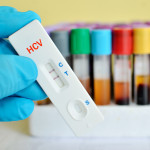The majority of people effectively treated with hepatitis C virus (HCV) therapy remain free of the virus five years later, say the authors of a study presented last week at the 2008 Digestive Disease Week Conference in San Diego.
The goal of HCV treatment is to maintain an undetectable HCV viral load for at least six months after completing a full course of HCV treatment. This is also known as a sustained virologic response (SVR). Given that combination therapy for HCV infection has only been available for several years, however, few studies have been able to confirm that an SVR truly is a sustained benefit.
Karen Lindsay, MD, of the University of Southern California Keck School of Medicine, and her colleagues enrolled 567 HIV-negative people who had completed a course of combination HCV treatment and followed them for five years. Of those who enrolled, 366 had achieved an SVR and 201 had not. Lindsay’s team found that of those who’d achieved an SVR, only four people, approximately 1 percent, relapsed and once again had a measurable HCV viral load. In those who’d failed to have an SVR, virus remained detectable, but only one person had progression of their liver disease during the five years of follow-up.
These results are highly positive in two respects. First, they confirm that people who achieve an SVR do appear to have a clinical cure of HCV disease. Second, the results suggest that even when a person hasn’t been cured, he or she does appear to receive a long-term benefit from treatment. Additional research will be needed to confirm similar observations in people who are also living with HIV.
Advertisement
Advertisement
Advertisement






Comments
Comments